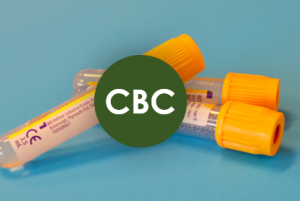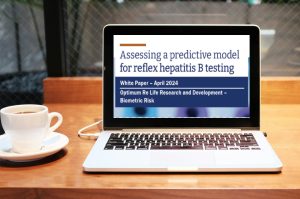Is vaping impacting an individual’s health and the corresponding effect on life insurance?
Recently, the Centers for Disease Control and Prevention (CDC) announced their investigation of severe pulmonary disease among people who use e-cigarettes (also known as vaping). And tragically, multiple deaths linked to vaping have been reported across the country. These are a few examples of issues surfacing that may have previously gone unrecognized, as vaping is still a fairly new phenomenon. However, there are some things we know for sure about vaping that could impact life insurers.
1. The liquids used in vaping are dangerous. E-cigarettes have been known to explode and the fluid is poisonous if it comes into contact with eyes or skin, or if you accidentally or deliberately drink it.
2. If you’re a smoker, vaping could support your habit, not break it. Instead of transitioning from cigarettes to e-cigarettes, some smokers end up using both. This can increase nicotine addiction instead of lessening it. E-cigarettes have not received Food and Drug Administration approval as smoking cessation devices.
3. Researchers know that e-cigarette aerosol contains toxic chemicals like those found in glue and paint. What is less clear is if the amounts are high enough to cause diseases like cancer.
4. The nicotine, regardless of the source, is addictive and toxic. E-cigarettes are used as a nicotine delivery system. In fact, nicotine is one of the most addictive substances available.
Other vaping facts for insurers to
consider:
5. Nicotine is proven to cause multiple health problems, some fatal. John Hopkins Medicine reiterates the danger of nicotine, no matter in what form it is ingested. It can raise blood pressure and cause spikes in adrenaline, which increases the heart rate and the likelihood of having a heart attack.
6. E-cigarettes can also be used to vaporize cannabis and THC, with unknown long-term effects. The relationship between nicotine and cotinine has been thoroughly researched and analyzed over the years. However, information on the effects of cannabinoids is not as scientifically vetted.
7. There are also potentially toxic metal nanoparticles in some e-cig devices that can be harmful. A National Institute of Drug Abuse report shows that some devices contain high levels of nickel and chromium.
Laboratory testing and vaping
Another fact that we can all agree upon is that more research is needed to determine how vaping impacts an individual’s health and the corresponding effect for life insurers. The negative health consequences from long-term tobacco use and smoking either cigarettes or cigars took decades to prove. Extensive health data for vaping does not exist yet. In the meantime, ExamOne will continue to work with our life insurance clients to help build comprehensive cotinine and THC laboratory testing solutions to address their requirements concerning vaping.




















Is vaping impacting an individual’s health and the corresponding effect on life insurance?
Recently, the Centers for Disease Control and Prevention (CDC) announced their investigation of severe pulmonary disease among people who use e-cigarettes (also known as vaping). And tragically, multiple deaths linked to vaping have been reported across the country. These are a few examples of issues surfacing that may have previously gone unrecognized, as vaping is still a fairly new phenomenon. However, there are some things we know for sure about vaping that could impact life insurers.
Here are some vaping facts from MD Anderson Cancer Center:
1. The liquids used in vaping are dangerous. E-cigarettes have been known to explode and the fluid is poisonous if it comes into contact with eyes or skin, or if you accidentally or deliberately drink it.
2. If you’re a smoker, vaping could support your habit, not break it. Instead of transitioning from cigarettes to e-cigarettes, some smokers end up using both. This can increase nicotine addiction instead of lessening it. E-cigarettes have not received Food and Drug Administration approval as smoking cessation devices.
3. Researchers know that e-cigarette aerosol contains toxic chemicals like those found in glue and paint. What is less clear is if the amounts are high enough to cause diseases like cancer.
4. The nicotine, regardless of the source, is addictive and toxic. E-cigarettes are used as a nicotine delivery system. In fact, nicotine is one of the most addictive substances available.
Other vaping facts for insurers to consider:
5. Nicotine is proven to cause multiple health problems, some fatal. John Hopkins Medicine reiterates the danger of nicotine, no matter in what form it is ingested. It can raise blood pressure and cause spikes in adrenaline, which increases the heart rate and the likelihood of having a heart attack.
6. E-cigarettes can also be used to vaporize cannabis and THC, with unknown long-term effects. The relationship between nicotine and cotinine has been thoroughly researched and analyzed over the years. However, information on the effects of cannabinoids is not as scientifically vetted.
7. There are also potentially toxic metal nanoparticles in some e-cig devices that can be harmful. A National Institute of Drug Abuse report shows that some devices contain high levels of nickel and chromium.
Laboratory testing and vaping
Another fact that we can all agree upon is that more research is needed to determine how vaping impacts an individual’s health and the corresponding effect for life insurers. The negative health consequences from long-term tobacco use and smoking either cigarettes or cigars took decades to prove. Extensive health data for vaping does not exist yet. In the meantime, ExamOne will continue to work with our life insurance clients to help build comprehensive cotinine and THC laboratory testing solutions to address their requirements concerning vaping.